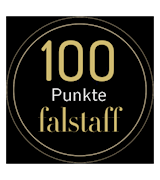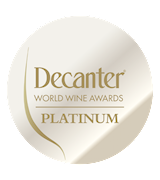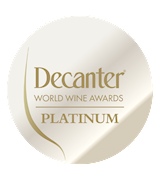Best Metropolitan City of Florence Alcoholic Beverage Types
MAIN INGREDIENTS
Negroni is a cocktail made with equal parts gin, sweet vermouth, and Campari. Although its origin is unclear, it is believed that this cocktail was invented in Florence in 1919 by Count Camillo Negroni, who wanted to improve his favorite drink - the Americano - by replacing soda with gin.
The cocktail was so popular that the Count started to produce its ready-made version in a distillery. Due to its bitterness, Negroni is considered an apéritif, and it is typically served on the rocks in an old-fashioned glass with an orange wheel garnish.
VARIATIONS OF Negroni
Alchermes is an ancient Italian liqueur based on a combination of rosewater and orange blossom water, sugar, herbs, and spices, while the typical red hue was traditionally imparted with the addition of crushed cochineal insects. It is believed that the liqueur was invented by the Sisters of the Order of Santa Maria dei Servi in Florence.
Nowadays, several brands are available on the market, and most of them list artificially derived dye that gives the drink its distinctive red color. The subtly spicy Alchermes can be enjoyed as a digestif, but it is also commonly used in the preparation of sweets, out of which the most popular are pesche di Prato and zuppa Inglese—a trifle-like Italian dessert, as well as its corresponding zuppa Inglese gelato flavor.
Amaro Santoni is a classic Italian aperitif hailing from Florence. It was invented by Gabriello Santoni in 1961. Made with a secret recipe, the product is flavored with thirty-four botanicals, including rhubarb, iris, and olive leaf. Santoni is a red-colored liqueur with herbal, floral, and earthy aromas.
It is a bittersweet, refreshing aperitif with herbaceous and citrusy flavor, and just hints of floral notes. The bottle is an homage to Florence as the upper part of the bottle resembles the dome of the Florence Cathedral. Amaro Santoni is best enjoyed as an aperitif.
Best Metropolitan City of Florence Alcoholic Beverage Producers
Marchesi Antinori is an Italian winery headquartered in Florence, Tuscany, with a winemaking tradition dating back to 1385. Over 26 generations, the Antinori family has directly managed the winery, blending innovation with respect for tradition and environmental preservation.
In 1928, Marchese Niccolò Antinori created Villa Antinori, which became the family's signature wine, representing the unique identity of Chianti Classico and Tuscany. In 2012, the family inaugurated the Antinori nel Chianti Classico winery in Bargino, symbolizing their bond to their ancestral land.
AWARDS

James Suckling - 98 points
2024

Falstaff - 100

Falstaff - 99
BEST Marchesi Antinori Wines
Bibi Graetz is a winery founded in 2000 on the hills of Fiesole, overlooking Florence. The founder, Bibi Graetz, grew up in an artistic family and fell in love with winemaking, dedicating his life to it. The winery boasts one of the largest collections of old vineyards in Tuscany, focusing on indigenous grape varieties such as Sangiovese, Canaiolo, and Colorino.
Old vines, high altitudes, poor rocky soils, and natural viticulture practices define their production philosophy, aimed at showcasing the terroir of each individual vineyard.
AWARDS

Concours Mondial de Bruxelles - Grande Médaille d'or
2022
BEST Tenuta Moriano Wines
AWARDS

Decanter World Wine Awards - Best in Show
2023

Decanter World Wine Awards - Platinum
2019
BEST Ruffino Wines
Isole e Olena is a renowned winery situated on the western slopes of the Chianti Classico hills, between Florence and Siena, at an elevation of 350 to 490 meters. The winery's name originates from the 1950s when the De Marchi family united two neighboring estates, "Isole" and "Olena," with a history dating back to the 12th century.
Paolo De Marchi, a fourth-generation winemaker with experience in California and France, took over the estate in 1976 and introduced modern viticulture and winemaking techniques. The estate spans approximately 50 hectares of vineyards, primarily planted with Sangiovese, alongside Cabernet Sauvignon, Syrah, and Chardonnay.
AWARDS

James Suckling - 99 points
2024

Wine Spectator - 96
2023
BEST Isole & Olena Wines
AWARDS

Decanter World Wine Awards - Platinum
2020
BEST Tenuta Carobbio Wines
Best Metropolitan City of Florence Alcoholic Beverages
Colore 2022 is a premium red wine from Bibi Graetz Winery, located in Tuscany, Italy. This wine is part of their prestigious line and represents the finest characteristics of the region. It is crafted from carefully selected grapes from old vines, which contribute to its complexity and depth of flavor.
The wine features aromas of ripe red fruits, with subtle hints of spices and earthy undertones. On the palate, it is full-bodied, with a pronounced structure and a long finish. Colore 2022 pairs excellently with a variety of dishes, including red meats, game, and aged cheeses.
AWARDS

James Suckling - 100 points
2024
AWARDS

Falstaff - 100
AWARDS

Falstaff - 99
AWARDS

Falstaff - 99
AWARDS

Falstaff - 99
AWARDS

Falstaff - 99
AWARDS

World Liqueur Awards - Country Winner
2024
AWARDS

Concours Mondial de Bruxelles - Grande Médaille d'or
2022
AWARDS

Decanter World Wine Awards - Best in Show
2023

Decanter World Wine Awards - Platinum
2019
Isole e Olena's Cepparello is a flagship wine crafted exclusively from Sangiovese grapes, showcasing the winery's dedication to this traditional Tuscan variety. The wine undergoes 20 months of aging in French barriques, followed by an additional six months in the bottle, resulting in a full-bodied profile with concentrated aromas of cherries, chocolate, and ripe plums.
Its robust tannic structure is complemented by notes of wild roses, cinnamon, rosemary, licorice, and coffee, leading to a long, complex finish with hints of roasted almonds and hazelnuts. Esteemed wine critics have recognized Cepparello's excellence; Robert Parker awarded it 95+ points, while Wine Spectator also granted it 95 points.
AWARDS

James Suckling - 99 points
2024
TasteAtlas food rankings are based on the ratings of the TasteAtlas audience, with a series of mechanisms that recognize real users and that ignore bot, nationalist or local patriotic ratings, and give additional value to the ratings of users that the system recognizes as knowledgeable. TasteAtlas Rankings should not be seen as the final global conclusion about food. Their purpose is to promote excellent local foods, instill pride in traditional dishes, and arouse curiosity about dishes you haven’t tried.













